Faculty
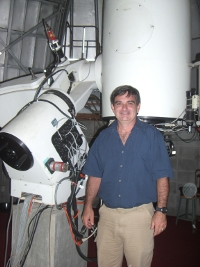 Dr. Michael Carini has been interested in astronomy since he was a child and received his first telescope for his 6th birthday. Watching the Gemini and Apollo missions he developed a strong interest in astronomy, which he turned into a profession. As an undergraduate, variable stars grabbed his attention, and later as a graduate student he became interested in the variability of quasars. It was also as a graduate student he discovered his love for teaching astronomy, something he has had the privilege to do at WKU for the past 20 years.
Dr. Michael Carini has been interested in astronomy since he was a child and received his first telescope for his 6th birthday. Watching the Gemini and Apollo missions he developed a strong interest in astronomy, which he turned into a profession. As an undergraduate, variable stars grabbed his attention, and later as a graduate student he became interested in the variability of quasars. It was also as a graduate student he discovered his love for teaching astronomy, something he has had the privilege to do at WKU for the past 20 years.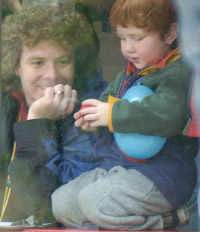 Dr. Richard Gelderman agrees with a wise astronomer’s adage that if a picture is worth a thousand words, then a spectrum is worth a thousand pictures. He uses low to moderate spectral resolution UV, optical, IR and radio line emission and continuum data to study active galaxies and regions of ongoing star formation in other galaxies. He also very active in outreach activities — visiting K-12 schools, organizing public telescope viewings, speaking to public audiences, advising the Hilltopper Astronomy Club, and working with math and science educators.
Dr. Richard Gelderman agrees with a wise astronomer’s adage that if a picture is worth a thousand words, then a spectrum is worth a thousand pictures. He uses low to moderate spectral resolution UV, optical, IR and radio line emission and continuum data to study active galaxies and regions of ongoing star formation in other galaxies. He also very active in outreach activities — visiting K-12 schools, organizing public telescope viewings, speaking to public audiences, advising the Hilltopper Astronomy Club, and working with math and science educators.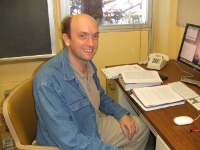 Dr. Steven Gibson is originally from Michigan. He got his Ph.D. from the University of Wisconsin in 1997 and then worked in Canada, Arizona, and Puerto Rico before recently moving to WKU, where he hopes to experience some form of winter again. When time allows, he enjoys playing the trumpet and exploring natural wonders. His research uses radio telescopes to study the cold interstellar clouds from which new stars form and the spiral arms of our home galaxy, the Milky Way.
Dr. Steven Gibson is originally from Michigan. He got his Ph.D. from the University of Wisconsin in 1997 and then worked in Canada, Arizona, and Puerto Rico before recently moving to WKU, where he hopes to experience some form of winter again. When time allows, he enjoys playing the trumpet and exploring natural wonders. His research uses radio telescopes to study the cold interstellar clouds from which new stars form and the spiral arms of our home galaxy, the Milky Way.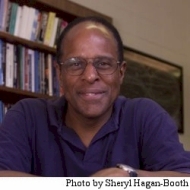 Dr. Charles H. McGruder, III is the William McCormack Professor at WKU and he obtained his Ph.D. at the University of Heidelberg. His research includes the construction of a worldwide network of fully robotic imaging telescope, extra solar planets and gamma ray bursts.
Dr. Charles H. McGruder, III is the William McCormack Professor at WKU and he obtained his Ph.D. at the University of Heidelberg. His research includes the construction of a worldwide network of fully robotic imaging telescope, extra solar planets and gamma ray bursts.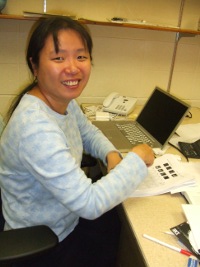 Dr. Ting-Hui Lee is originally from Taiwan. She got her Ph.D. at the University of Calgary in 2004, where the winter is too cold and too long. She then moved to Arizona and Puerto Rico (too warm!) and finally moved to WKU recently where she is looking forward to have some seasons but not a lot of snow. Her research involves multi-wavelength studies of planetary nebulae, most recently investigating how bipolar nebulae get their shapes.
Dr. Ting-Hui Lee is originally from Taiwan. She got her Ph.D. at the University of Calgary in 2004, where the winter is too cold and too long. She then moved to Arizona and Puerto Rico (too warm!) and finally moved to WKU recently where she is looking forward to have some seasons but not a lot of snow. Her research involves multi-wavelength studies of planetary nebulae, most recently investigating how bipolar nebulae get their shapes.Past Faculty
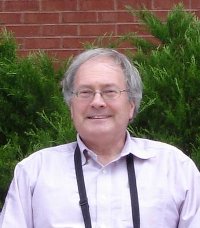 Dr. Roger Scott retired in 2012 as a Professor and the Director of Hardin Planetarium. He completed his Ph.D. at the University of Florida in 1975, and was a Post Doctorial Associate at UF for 2.5 years. In 1978 he accepted a position at Ball State University as the Director of the BSU Planetarium and Observatory. He came to WKU in 1991. At WKU he created a yearly summer Astronomy and Space Science Workshop for Teachers that was held from 1992 to 1997. He is served as the campus director of the Kentucky Space Grant Consortium and the WKU Space Grant Outreach Coordinator. He also wrote and presented countless programs for Hardin Planetarium.
Dr. Roger Scott retired in 2012 as a Professor and the Director of Hardin Planetarium. He completed his Ph.D. at the University of Florida in 1975, and was a Post Doctorial Associate at UF for 2.5 years. In 1978 he accepted a position at Ball State University as the Director of the BSU Planetarium and Observatory. He came to WKU in 1991. At WKU he created a yearly summer Astronomy and Space Science Workshop for Teachers that was held from 1992 to 1997. He is served as the campus director of the Kentucky Space Grant Consortium and the WKU Space Grant Outreach Coordinator. He also wrote and presented countless programs for Hardin Planetarium.
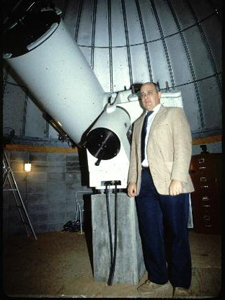 Dr. Richard Hackney was a Professor until his death in March 2007. Richard completed his B.S. degree in Engineering Physics at the University of Tennessee in 1966, his M.S. in Physics at U.T. in 1966, and his Ph.D in Astronomy at the University of Florida in 1972. He received the Douglas V. Roseberry Award as Outstanding Senior Physics Major while at U.T. He had been a professor in the Department of Physics and Astronomy at Western Kentucky University since 1972, Director of NASA Kentucky Space Grant Consortium from 1992 until his death, Director of Kentucky NASA EPSCOR Program from 1994 until his death and the founding director of WKU’s Bell Observatory. He served as a member of the Executive Committee of the National Council of Space Grant Directors and Board of Directors of the National Space Grant Foundation.
Dr. Richard Hackney was a Professor until his death in March 2007. Richard completed his B.S. degree in Engineering Physics at the University of Tennessee in 1966, his M.S. in Physics at U.T. in 1966, and his Ph.D in Astronomy at the University of Florida in 1972. He received the Douglas V. Roseberry Award as Outstanding Senior Physics Major while at U.T. He had been a professor in the Department of Physics and Astronomy at Western Kentucky University since 1972, Director of NASA Kentucky Space Grant Consortium from 1992 until his death, Director of Kentucky NASA EPSCOR Program from 1994 until his death and the founding director of WKU’s Bell Observatory. He served as a member of the Executive Committee of the National Council of Space Grant Directors and Board of Directors of the National Space Grant Foundation.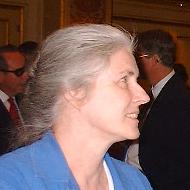 Dr. Karen Hackney retired in 2009 as Professor and Director of the Kentucky Space Grant Consortium and Kentucky NASA EPSCoR program, a position she held from 2007 to 2009. She completed her Ph.D. in 1973 from the University of Florida and has since 1992 been deeply engaged in proposing for, developing, and administering two NASA-funded programs that benefit Kentucky and Western until her retirement in 2009. The Kentucky Space Grant Consortium and the Kentucky NASA EPSCoR Program develop research and teaching infrastructure throughout the Commonwealth. During Karen and Richard Hackney’s tenure as directors, more than $9M in federal and state funding has supported more than 400 faculty and student projects throughout Kentucky, including more than 90 at Western Kentucky University.
Dr. Karen Hackney retired in 2009 as Professor and Director of the Kentucky Space Grant Consortium and Kentucky NASA EPSCoR program, a position she held from 2007 to 2009. She completed her Ph.D. in 1973 from the University of Florida and has since 1992 been deeply engaged in proposing for, developing, and administering two NASA-funded programs that benefit Kentucky and Western until her retirement in 2009. The Kentucky Space Grant Consortium and the Kentucky NASA EPSCoR Program develop research and teaching infrastructure throughout the Commonwealth. During Karen and Richard Hackney’s tenure as directors, more than $9M in federal and state funding has supported more than 400 faculty and student projects throughout Kentucky, including more than 90 at Western Kentucky University.

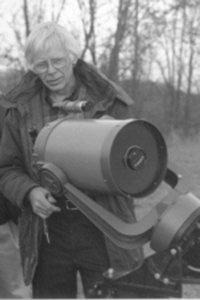
Dr. Thomas Bohuski retired from WKU in 2014. Dr Bohuski was a fixture in the department for many years, teaching inneumerable sections of introductory astronomy courses.
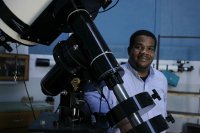
Dr. Louis-Gregory Strolger left WKU in 2015 for a position at the Space Telescope Science Institute. He completed his Ph.D. in 2003 at the University of Michigan and came to WKU in 2005. He focuses his research on supernova cosmology and dark energy, supernova rates, galaxy enrichment and star formation, gamma ray bursts and their connection to supernovae and the design and operation of a globally networked, fully autonomous astronomical observatories.
Past Staff
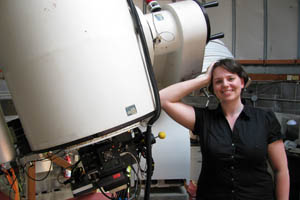 Dr. Rachel Campbell served as the Observatory Education Scientist from 2010-2012.
Dr. Rachel Campbell served as the Observatory Education Scientist from 2010-2012. Dr. David Barnaby , Observatory Education Scientist from 2000-2008. Dr. Barnaby is currently working for an Aeronautical Firm in Albuquerque, NM.
Dr. David Barnaby , Observatory Education Scientist from 2000-2008. Dr. Barnaby is currently working for an Aeronautical Firm in Albuquerque, NM.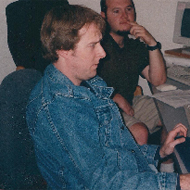 Dr. John Noble , former Research Associate and is now an Upper School Math Teacher at The Chapin School in New York City. (Student Rob Taylor is in the background of this photo)
Dr. John Noble , former Research Associate and is now an Upper School Math Teacher at The Chapin School in New York City. (Student Rob Taylor is in the background of this photo)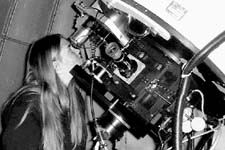 Whitney Wills Richardson was a technician for Bell Observatory. She graduated from WKU in 2003. She is currently working at the Fan Mountain Observatory at the University of Virginia.
Whitney Wills Richardson was a technician for Bell Observatory. She graduated from WKU in 2003. She is currently working at the Fan Mountain Observatory at the University of Virginia. Dr. Johnny Jennings , former Research Associate with Dr. Charles McGruder.
Dr. Johnny Jennings , former Research Associate with Dr. Charles McGruder.